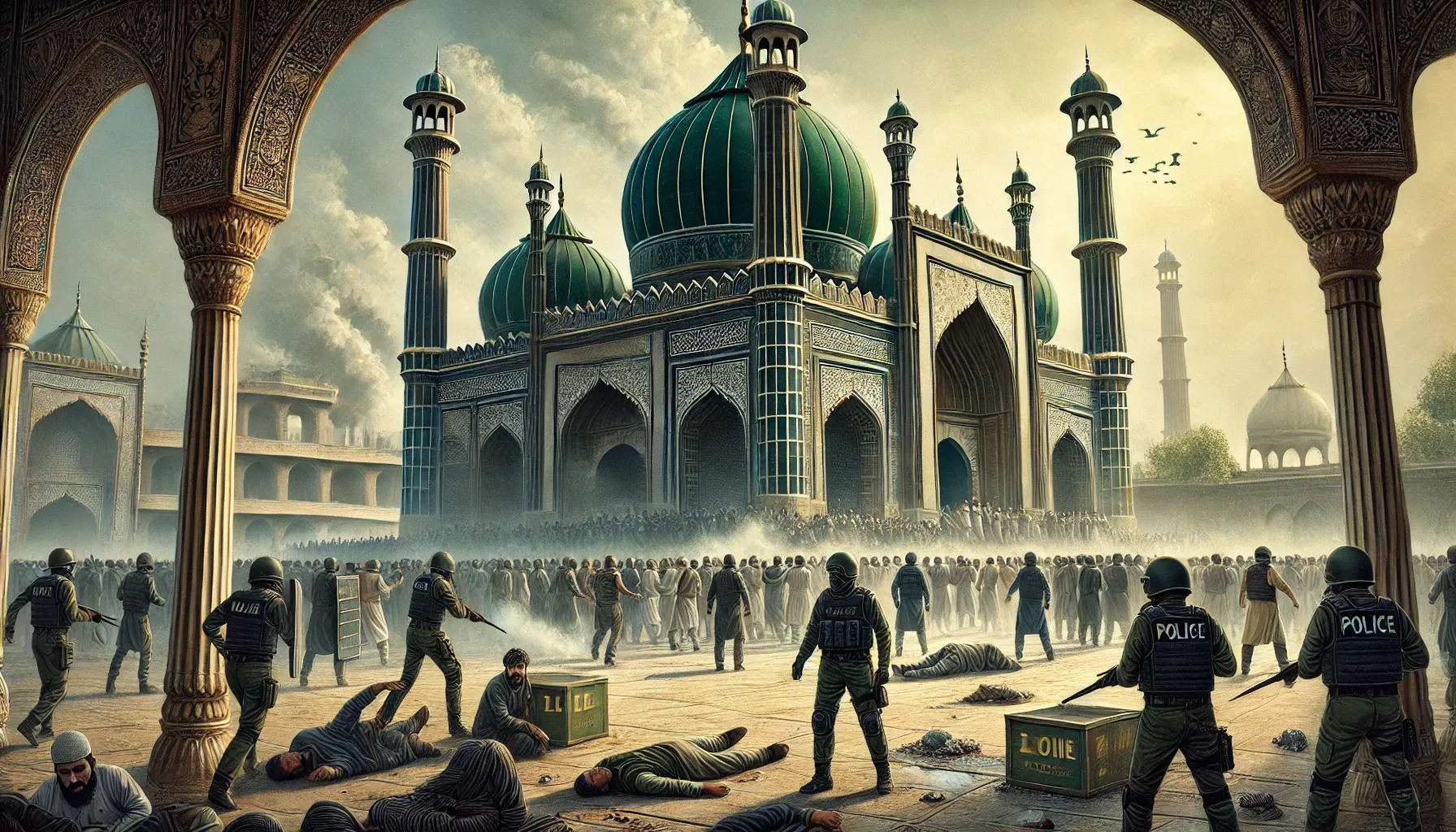The court-ordered survey of Sambhal’s Shahi Jama Masjid sparked unrest, leaving six dead. Critics allege judicial bias, raising concerns about systemic targeting of Muslim sites and communal harmony.

In Sambhal, Uttar Pradesh, violent clashes occurred during a court-ordered survey of the Shahi Jama Masjid, resulting in the loss of five lives and leaving over 20 injured, including police personnel. The survey, ordered to investigate claims that the mosque was built over a Hindu temple, has sparked debates about judicial processes and administrative decisions. Critics have pointed to the contrasting pace of these proceedings with the delays seen in other legal cases, raising questions about systemic consistency. Allegations of excessive use of force and administrative bias have added to the public discourse.
What Happened in Sambhal?
- Court-Mandated Mosque Survey:
- The survey was ordered by Civil Judge, Aditya Singh, of Sambhal at Chandausi, on November 19, 2024.
- The directive was based on a petition filed by Advocate Hari Shankar Jain and seven others, alleging that the mosque was built over a demolished Kalki temple during the Mughal era.
- Advocate Commissioner Ramesh Raghav was appointed to conduct the survey, with a report submission deadline set for November 29, 2024.
- The first round of the survey was conducted on November 23, followed by a second round the next morning.
- Unrest During the Survey:
- On November 24, tensions escalated as locals gathered near the mosque to protest the survey.
- Protesters reportedly raised slogans and threw stones, prompting police to use tear gas and batons.
- The violence resulted in six deaths, all of whom were young Muslim men in their teens or twenties, according to local sources.
- Over 20 police personnel were injured, including a constable with a critical head injury.
Judicial and Administrative Actions
- Quick Judicial Orders:
- Critics argue that the rapid proceedings in this case highlight systemic biases.
- Academic and writer Apoorvanand remarked, "Courts have now made it so easy for anyone to demand that their curiosity be satisfied by ordering surveys of mosques."
- He added that while Justice D.Y. Chandrachud’s precedents may have "opened the floodgates," the judiciary must enforce the 1991 Places of Worship Act to protect communal harmony.
- Restrictions Imposed in Sambhal:
- The district administration suspended internet services to curb the spread of misinformation.
- Prohibitory orders under Section 163 of the Indian Citizens Security Code, 2023 were imposed, barring entry into the district without prior permission.
- Crackdown on Protesters:
- Around 20 individuals were detained for alleged involvement in stone-pelting and violence.
- Superintendent of Police Krishna Kumar Vishnoi emphasized, “This was not the act of an unruly mob; it was a targeted challenge to the administration.”
- Authorities announced plans to invoke the National Security Act (NSA) against those identified as key perpetrators.
Criticism of Judicial Precedents
- Blame on Former CJI D.Y. Chandrachud:
- Critics have directly linked the current unrest to the judicial precedents set by retired Chief Justice of India D.Y. Chandrachud, particularly in the Gyanvapi mosque case.
- Research scholar and activist Aasif Mujtaba asserted, “By opening the floodgates of the Places of Worship Act, 1991, he made it simple for lower courts with Hindutva inclinations to order for checking the existence of temples beneath every mosque.”
- Systematic Biases in Legal Actions:
- The swift actions in cases involving Muslim heritage sites stand in stark contrast to the delayed proceedings in other legal matters.
Political Reactions
- Opposition Critique:
- Samajwadi Party Chief Akhilesh Yadav described the incident as a “government-planned riot”, calling for murder charges against officials responsible for the violence.
- He remarked, “The way the Places of Worship Act is being violated, hearings and orders are coming on the same day, and surveys are being conducted immediately after.”
- Congress Party’s Stand:
- Congress spokesperson Pawan Khera labeled the violence a “well-planned conspiracy” aimed at disrupting communal harmony.
- He urged residents to reject hate and uphold peace, stating, “The administration favored one side and escalated the violence post by-elections.”
Broader Implications
- Erosion of Secular Values:
- The Sambhal violence reflects a troubling trend where cases involving Muslim heritage sites receive disproportionate judicial attention, fueling communal discord.
- The 1991 Places of Worship Act, designed to preserve the religious status quo, is increasingly sidelined, eroding India’s secular framework.
- Call for Judicial Accountability:
- Critics demand stricter judicial scrutiny of petitions that risk exacerbating communal tensions.
- Academic Apoorvanand emphasized, “The top court must stand up to make the 1991 Places of Worship Act effective.”
Sources: THE WIRE, Business Standards & Maktoob Media.





